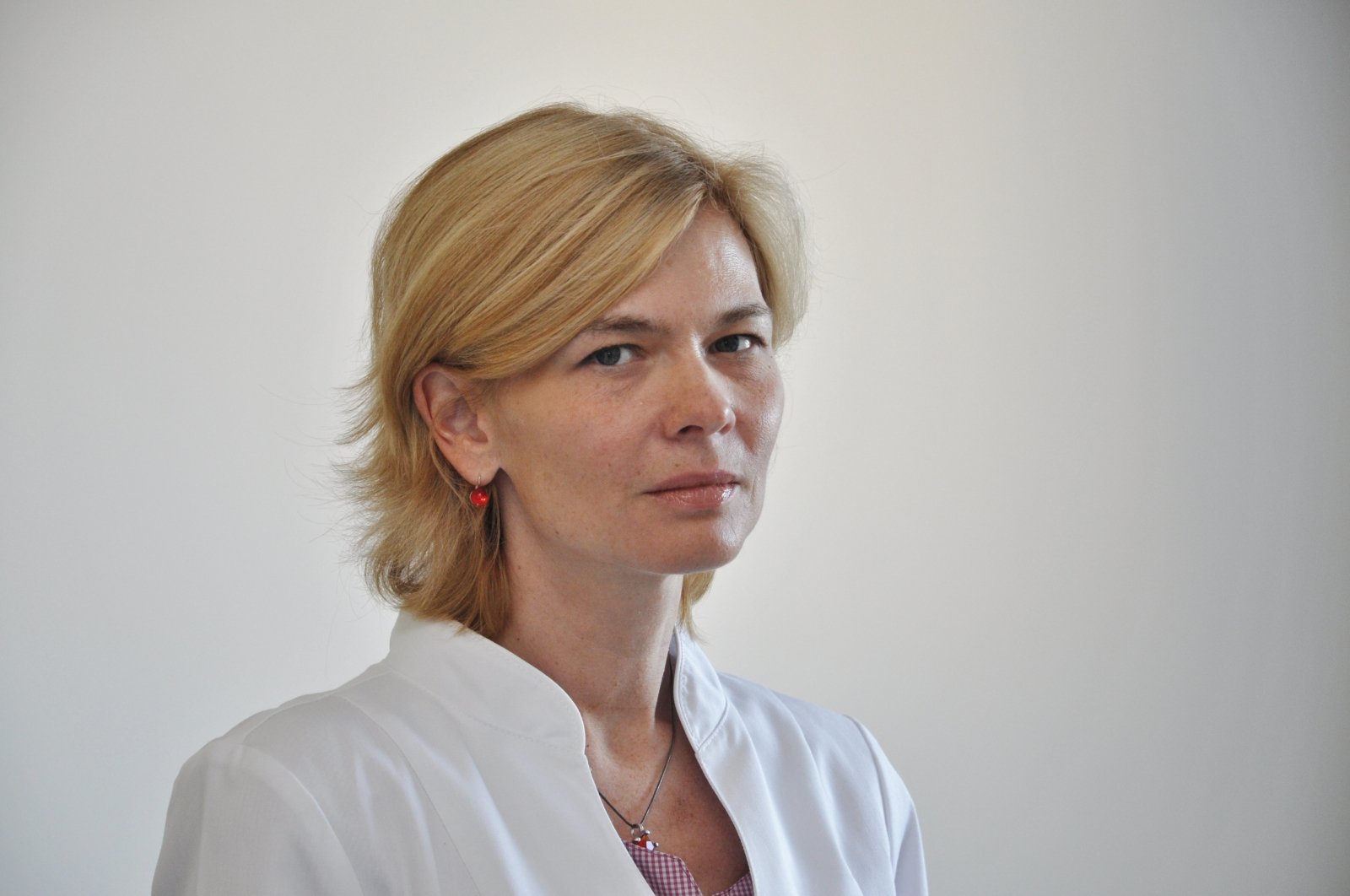
[ad_1]
We discussed this with the head of the Pediatric Oncohematology Center of the Santara Clinics of the Vilnius University Hospital, a pediatric oncohematologist doctor. dr. Jelena Rascon.
You said that childhood cancer is an extremely rare disease. How often do you get it?
Yes, childhood cancer is a very rare disease. In comparison, around 18 thousand adults in Lithuania are diagnosed with cancer each year. In terms of childhood cancer, there are 80-90 new cases per year in Lithuania. Of these cases, the types of cancer are different, they are all very different. Each time we treat a new patient and their disease, treatment is selected based on the child’s disease, age, tumor stage, and other factors, making it individual enough for oncologists to update their knowledge. and consult colleagues from abroad every time.
Are children recovering from cancer more easily than adults?
According to statistics, the probability of recovery is 80%, in some forms of the tumor, even 90%. Once diagnosed, the family can know almost immediately whether the prognosis is favorable or not. However, sometimes it happens that the disease recurs, the treatment does not work as planned, so not all situations can be foreseen.
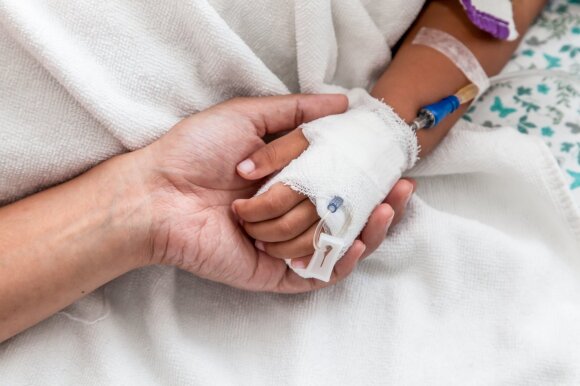
You mentioned that the disease may return. Is this often the case?
Depends on the tumor, statistically the disease recurs 5-10 percent. children This means that most children recover from cancer, grow up, study, start their own families and live full lives. Of course, the important thing is not just that the patient recovers. Every effort should be made to ensure that the quality of life is as good as possible, even after the disease has been overcome. After all, a healthy person can remain infertile throughout life, have thinner hair, or shiny scars after surgery. This is also important for patients.
Probably the fact that a child has a high probability of full recovery, and is the biggest difference from cancer diseases in adults?
Definitely yes. Of course, childhood cancer treatment costs a lot because innovative treatments are expensive. However, it is a public investment in life.
What oncological diseases do children contract most often?
The most common oncological diseases in children and adults are very different. We know that adults generally have cancer of the lung, colon, breast, prostate, cervix, and ovary. Children do not have such oncological diseases, such cases are isolated and very rare. Most patients have leukemia (a cancer of the blood) or tumors of the central nervous system (CNS). Therefore, prevention programs cannot be adapted for children. If we can tell adults not to smoke, eat healthy, and exercise reduces cancer risk, and preventive screening can detect it at an early stage, these tips don’t apply to children. In young people, oncological diseases are believed to be caused by genetic mutations. They are hardly affected by environmental and external factors.
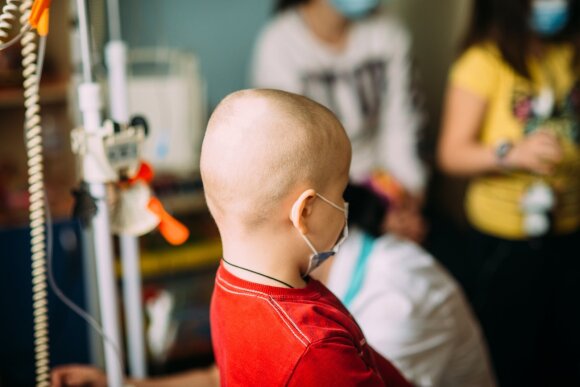
Since there are no prevention programs for children to be diagnosed with cancer, what symptoms do doctors see?
The symptoms are also nonspecific. When it comes to leukemia, it starts as a simple infection. A blood test can be done when the child is taken to the doctor, but does not show cancer either. However, the alleged infection remains recurrent, with bruising or bruising. Only later the blood test changes significantly, then an oncological disease can be suspected. It should be noted that we have about 15 new cases of childhood leukemia per year, and thousands of children enter polyclinics with infections or fever every day. Therefore, it is definitely not worth attacking to think that when a child has a fever, he develops an oncological disease.
However, if parents notice persistent bruises for no reason, the fever doesn’t stop doing the necessary tests. The symptoms of CNS tumors are also nonspecific: headache, may cause nausea, vomiting, gait disturbances, seizures. However, occasionally everyone experiences vomiting or nausea, mainly due to an infectious disease. If the body develops cancer, the symptoms do not go away and continue to recur. Then you should worry.
At what stage are children with cancer most often diagnosed?
There is also a wide variety of cases that are identified in the fourth stage. However, it doesn’t take as long to determine how fast a cancer develops, because in children they are often extremely aggressive: they spread quickly and move to other organs. The good news is that rapidly spreading tumor cells also respond well to chemotherapy, which means that such cancers can be cured, but not in all cases.
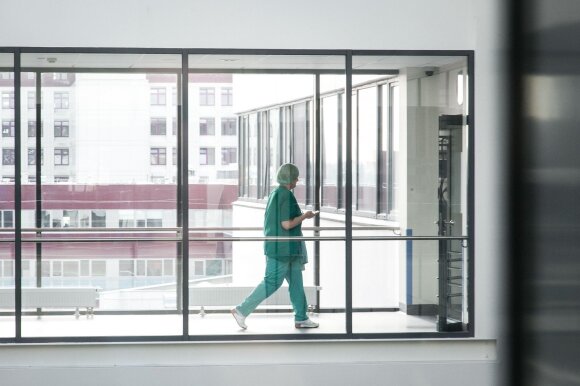
Santariškės Clinics
Each cancer condition is treated differently. Could you list its main forms?
Blood cancer is usually treated with chemotherapy, which sometimes requires a hematopoietic stem cell transplant. Organ tumors are treated in a complex way: surgically, radiotherapy, chemotherapy, immunotherapy, if necessary, and transplantation. All forms of treatment may be necessary if the disease is aggressive. The entire process is based on international practice.
How do parents accept the news that their child has cancer?
It is a great surprise for all families. The first days and the first weeks are extremely difficult, as life turns around and causes an emotional crisis. Of course, at that time, the family desperately needs emotional and psychological help before accepting this message and beginning to fight the disease. There is simply no other way, there is death on the opposite side. Family support for the child is very important. Furthermore, it often happens that there is another child in the family who is completely forgotten due to the presence of the patient. Creating a balance in the event of such a disaster in the family is very difficult.
Let’s talk about the daily lives of doctors who work in pediatric oncology rooms. I am probably not mistaken in saying that the doctors working in this department experience great emotional stress. Why did you choose to work here?
While still studying, I did an internship in the pediatric oncology department and then worked as a nurse there. I really liked this specialty and was fascinated by the fact that it is very advanced and develops rapidly. It is also interesting that pediatric oncology is inseparable from pediatrics, as other symptoms to be treated are often felt after chemotherapy. It is very interesting that we need to work closely with professionals from abroad, because otherwise we will not improve.
What is the most difficult part of your job?
Lose the patient because it is impossible to get used to him. When you have to tell the parents that there is no way out, all you have to do is take care of the child and let him go. Thank God such situations are very rare, but they do happen. Before that, we always consult with colleagues from abroad, we read all possible sources, we tried various options. Unfortunately, parents have to say that after all the proven treatment options, Plan B no longer exists. We are talking about 80-90 percent. the children are recovering, but there are those who we can no longer help, just to do everything possible to facilitate the departure. Escorting a child is very difficult for all hospital staff, both doctors and nurses.
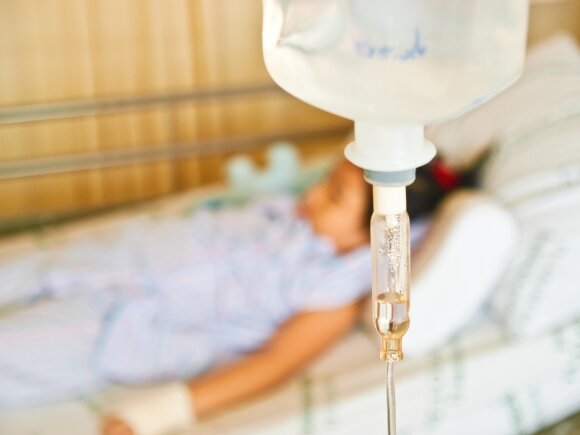
Do parents tell children they have a serious illness or are they silent?
It is certainly not hidden from the children themselves, they need to know what they are tired of. Also, these days it would be impossible to hide something when there is so much information on the Internet. It is not necessary to do this, because it is much easier to speak and agree with the patient when I say everything openly. Treatment is a complex process, although the patient recovers, but until then he has to cross the paths of the cross. Therefore, the child also needs to know why he must endure such difficulties and what to expect if treatment is refused. Even with the smallest patients, you should talk, tell them what is happening and what will happen next.
Sometimes he wonders what is special about pediatricians. Pediatricians need to talk about the disease not only with the patient, but also with the mother, father, grandmother and the whole family. This is not a patient with whom, as an adult, one can sit down and tell us about the disease. Sometimes doctors tell the child about the cancer, sometimes the parents, but they must also agree and know exactly how to pass on all that information. The treatment is very long and can last from a few months to 2.5 years. The whole process is divided into stages, so it is important to make clear to the patient that all stages are equally important and that all stages must take place. In addition, the child and family are not left alone, there are many cases of this type, so everyone shares their experiences, they support each other.
And how do children get the message that they are sick?
Well, you really need to be able to properly talk to your child about this. After all, we can’t go to the room and figure out, “You have cancer.” We try not to speak alone, but together with the psychologist, the parents, so that the patient is not alone when he finds out about the disease. We try to say gently, but without hiding anything, that he has a serious illness, but we will treat it and try to recover it.
We try to make the child optimistic, convince ourselves that everything will be fine, as well as not keep quiet that the road will be difficult, overcoming the illness will take time and effort. Curing, fighting disease is also hard work, but there is no way to let it go. Of course, everything works differently. The way in which a child will receive a message also depends on his age: if the child is young, the disease is accepted more calmly, if the adolescent, it is generally more difficult.

How do doctors themselves cope with patient losses? Do you manage to close the door after work and stop thinking?
Not a single doctor really doesn’t shut the door and stops thinking about work. Still, the idea will take you home too. We are happy that there are incomparably fewer deaths than cure, but there are times when a child is simply ill, for example, not responding to treatment or life-threatening complications. Then you quit your job too, but you still think about what else could be done to consult.
In general, the entire team of doctors and nurses is crucial, and a large part of successful treatment depends on it. When treating a child, he or she may lose not so much from the cancer itself as from the complications caused by the treatment. And managing them requires the expertise of doctors. The atmosphere in the team itself, the support of colleagues is very important. No less necessary is a stable emotional environment in the family of the doctor. Perhaps the doctors themselves are not actively seeking psychological help, but it would certainly be necessary.
It is strictly prohibited to use the information published by DELFI on other websites, in the media or elsewhere, or to distribute our material in any way without consent, and if consent has been obtained, DELFI must be cited as the source.
[ad_2]